
This article is part of an exciting series we launched in 2018 called Today’s Wonder Women – designed to celebrate the inspiring, impactful, empowering and extraordinary things ordinary women are doing every day. Over the coming months we will be sharing interviews, essays, articles and guest posts about women who are creating change. If you have a story to share and want to add your voice to the Today’s Wonder Women conversation, get in touch by emailing info@girltalkhq.com.
Meet Estefani Alarcon, a young woman from Los Angeles who is using her voice and her passion to disrupt the status quo in media and journalism. Having graduated from Mount Saint Mary’s University with a dual degree in Film, Media and Social Justice and Journalism & New Media, she is now making her temporary home on the East Coast as a graduate student at NYU Steinhardt’s Media, Culture & Communication program. Her time has a student has certainly not been limited to the classroom, however, as she is already making headway into a promising journalism career. Having written for publications such as Teen Vogue, Rewire, Fierce by Mitu, and yes even GirlTalkHQ (!), she is living proof that the younger generation are going to shape the world in profound ways with their voice and their actions.
Estefani is our pick for this week’s Today’s Wonder Women column because of the way she is taking her experience as a young Latina growing up in South Los Angeles, and creating spaces for more people of color, especially women of color in the diaspora of this region in California, to share their unique stories with the world. Along with her focus on immigration and policies and incarcerations trends surrounding this issue which she has written about a fair bit and is doing research on, Estefani is also the founder of an online newspaper called ‘Dear Southside‘, which is all about recreating and telling the untold stories of South Los Angeles.
The media and journalism landscape is still very much male-dominated right now in America, according to statistics from the Women’s Media Center, which has a direct impact on how the public perceives and digests a lot of important issues that filter through our news feeds. With more diverse voices like Estefani, we are going to see a future of journalism that reflects a more realistic landscape of our every diversifying nation, and we are better off for this.

Tell us about growing up in South Central Los Angeles and how it shaped your perspective on the world and people:
Growing up in South Central was what I needed as a young immigrant coming from El Salvador. The community and people in South Central made is easy to adapt to the changes around me. I felt welcomed, supported and safe. Everyone around me was working hard and building with the only resources they had. We were all after something, figuring it out and everyone was there to support me even if they needed support also. As an immigrant you build with the only resources you have which are often little to none and the people in my community didn’t have a lot of resources but were building with what they had. That really motivated me.
I lived in South Central and went to school in mid-city so at a young age I was riding the bus, and getting home from school late… it was never easy, but everything I went through at that time has shaped me into who I am now. I see everyone with respect and nothing less. The people I rode the bus with were also commuting further out to clean houses, take care of someone’s kids and to get to their job. There was nothing stopping them and that reminded me there was nothing that was going to stop me. I learned so much in those buses, met so many people, and it all built a strong bond between South Central and me. Every stop from Jefferson to Manchester introduced me to someone new, something new. It made me grow a profound love for my community, the food, the culture, but most importantly the people. The community watched over me when my parents were working. I then learned it takes a village.
As a young girl, what drew you to become interested in media and journalism? Did you have any role models or heroes?
I grew up watching telenovelas and the evening news with my family. It was something we did together while eating dinner. I could never identify with any of the characters, but I loved how it brought us together and developed a deeper dialogue about politics, identity, race, and more. But my family’s stories drew me into media and journalism, I want to tell their stories. I love hearing them, I love gathering together and watching my mom impersonate the people she is telling the story about. My family are all storytellers, I believe I am a storyteller because of my mother and father.
I have to say one of my favorite actresses growing up was America Ferrera. Her character in “The Sisterhood of The Traveling Pants” was the first introduction I had to a Latina character that was thicker on American film. Her role raised a lot of questions, but I appreciated her. I also loved the news anchor Ilia Calderon on Noticero Univison, she was the first Afro-Latina I had ever seen anchoring on a Latinx news platform. For a long time, I wanted to be a news anchor but didn’t see it possible because of the lack of inclusivity in the broadcast journalism when it comes to image.

One of the things we love about you is your unapologetic stance on “taking up space”. As a young Latina, can you tell us why this is important to you and your community?
I’ve always felt like I take up space, people have made me feel that way – maybe it’s my voluptuous body, my Salvadoran loud mouth, my curly hair or my unsolicited opinion. Most of the time I am confident in the space I take and it’s difficult for anyone to take that from me so I just own it – now. It was not always like this but there’s a privilege in taking up space. You are able to save some for others. Because of my immigration status I used to make myself small out of fear, also because of other’s insecurity about MY body, and my own insecurities developed from that. I think my owning the space I take, and the confidence I have grown into will inspire others but mostly importantly make room for others. I am not winning if I’m taking up space alone. I want us all to win. I want women of color to be the majority!
You are currently studying at NYU and also working for the Geena Davis Institute on Gender in Media. What are some of the ways the GDIGM is impacting film and TV culture at large, that people may not know about?
Geena Davis believes if she can see it she can be it. Women, people of color, people from the LGBTQ community, people with disabilities all have been underrepresented in the media. The Geena Davis Institute is amplifying those conversations through research bringing in data that shows that by representing everyone there is better results not only through the box office but also in how women see themselves.
One of their studies looked at how much screen time women get even if they are the lead in the film and the results were that 77% of the screen time is men even though women make 51.9% of the population. The numbers don’t make sense. Their work is incredibly important because providing production companies with this research would be a catalyst for change, we need to demand it. Men, especially white men are not the only ones who walk this world… we need to represent every community because it matters. We want to see people like us on screen. “If she can see it, she can be it.”

We are starting to slowly see change in the representations on screen, but we still have a long way to go. Who are some Latinx people that are currently inspiring you with their visibility and voice?
We have such a long way to go but I’m currently inspired by Indigenous actress Yalitza Aparicio. Her role in Roma felt very personal, I saw my mom in her role. I saw all the Black and Brown women raising other people’s children missing out on their own children’s growth to provide for them in her role. I saw my grandparent’s home in that car driveway. She’s also a fresh new face representing indigenous women. She’s a brown woman, not often do we see a brown indigenous woman on screen speaking in her native tongue and Spanish.
Hollywood loves white Latinx actors and actresses, that doesn’t represent Latinx culture as a whole but that’s all we see and the hatred, jealousy and terrible things white Latinx actresses are portraying right now during Yalitiza’s rise is a clear representation of the long road we have ahead but Yalitiza’s success gives me hope for other Indigenous women like her. Yalitiza owning her roots is inspiring.
You are also the founder of a newspaper called ‘Dear Southside’. What made you want to create this, and what do you focus on?
One day my friends and I were leaving Downtown. One of my friends who is the editor of Dear Southside had written a few pieces for them so after picking an issue up, I told my friends “this is so cool, I wish we had this in South Central.” That sparked the idea, I felt our stories are never told from our own perspective, whenever I hear about South Central in the media it’s never good. I want to change that narrative because South Central is more than what it has previously been painted as, there’s so many people doing great work, I want to highlight them.
I was also noticing my community slowly changing, people moving in and longtime residents moving out, now it’s now as of a slow change. I wanted to encourage people to not “leave the hood” for businesses and services offered in our own backyard, to support local businesses and help them sustain each other through business. I focus on businesses, non-profits, people and anything that shares the real essence of South Central. For some people it’s an Instagram photo with a row of palm trees or the Slauson swapmeet as the background for likes, for a lot of us it’s home. It’s our village.

You have also written articles for a number of publications including Teen Vogue and Rewire. How has writing become a source of power for you?
Writing serves more as healing than power for me. It has allowed me to tell my own story. But it has become a source of power by allowing me to tell my own story for what it truly is, which is such a privilege. In Journalism among other media platforms we often have others telling our narrative and they rarely get it right. They receive backlash, apologize and again fuck up… they are just now, accepting that they need to diversify their newsrooms, writers and employees to have the stories reflect the audience they are writing for, or simply the world. Through my writing I have been able to educate people about TPS and other news and policies that affect the immigrant community.
Being vulnerable and sharing my own story has not been easy, it has actually exposed me and put me in the radar which could mean taking my power away but if I don’t do it who will? It takes a village. The power we have as storytellers, writers, journalist, etc is very dangerous also, we could easily do more damage than help. Our job is to see the unseen and that which others aren’t paying attention to but it’s scary bringing attention to someone or something that doesn’t need it because certain communities could be affected. I don’t want to be the voice for my community because they have that, I just want to amplify it, make their stories heard, we are all deserving.
We love that you are utilizing the power of media to talk about necessary topics such as identity, culture and diversity. Why do you think it is important that more minorities and marginalized groups use media to raise their voice?
Our voices are so powerful. The media loves our stories they just don’t allow us to be the ones to tell them. There’s a slight shift in that right now and I think we need to keep pushing and demanding more diverse narratives being told by people of color, most importantly women of color. I also believe if we are the ones to tell our own stories there is a slim chance of getting it wrong… not everyone will always be 100% satisfied but having diverse groups of people gathering telling stories, giving their opinion is a way to get them right. Our stories are also so valuable, authentic and unique, why wouldn’t media groups want that? If capitalism is their motive, then we got that too! It makes sense and cents.
As a Salvadoran woman growing up in Los Angeles, and now residing in Brooklyn, how has your identity been impacted by the places you’ve lived in as well as your heritage?
I’ve always been a proud Salvadoran and like most Central Americans we go unnoticed and misidentified. Some people will be quick to identify you as Mexican like Central America and other countries don’t exist but growing up in LA there’s Salvadoran restaurants all throughout the city and my family is very, very Salvadoran. They never let go of our roots even though we had to adapt to American culture, so I always felt is very close to me. In Brooklyn that has changed.
I definitely haven’t found a strong Salvadoran presence here but it’s nonetheless a great community. There’s a lot of people from the Caribbean near me and some of their culture reminds me of El Salvador. Small things like plantains which we call platanos. I appreciate even the smallest things that reminds me of my roots. I take them everywhere with me, but I do miss my motherland and all I currently have of it are memories, stories and photographs.
Right now there is a lot of demonization of women, minorities, immigrants and a number of other groups in our political system. How can everyday activists and advocates push back against the rising hatred we see?
The way to push back against the rising hatred is by standing up and speaking up. If we continue to “mind our business” when someone around us is being attacked and not holding people accountable and this includes people from our own communities, we will continue to allow that hatred to continue hurting our communities. We have to stand up and say something… for a lot of people it’s scary because as minorities we can face a lot of danger doing so but being afraid will only make them more powerful. They are accomplishing the goals on their to-do list. We have to stand up for other communities also, not only our own or issues that only affect us individually. That will get us nowhere.

What kind of change are you most passionate about seeing in the future, and how do you hope to work toward that?
I want to see more women being bosses. On sets directing, behind the screen shooting, in newsrooms, owning businesses, starting business, taking over tech, everything. I want to see women of color take over the space they deserve, I want to see them being acknowledged and recognized for their work. I want them to be compensated for their labor, rightfully. I want to see them with bigger production budgets, trusted and allowed to get shit done, because they can, we can we just need an opportunity. I am working towards that by making rooms for others wherever I have the privilege of being. By helping other women get ahead. That only means power! We need to uplift each other, hire each other, support each other and simply make room for the 100th women behind. Victoria Mahoney, a director I consider a role model once talked about the 100th women behind us. I think of her often and how I am making room for the 100th women behind me.
What would you say to other young women, especially women of color, who feel like their voice doesn’t matter?
Our voices, our stories, our ideas, our thoughts do matter and are worthy of being heard, if not there wouldn’t be so many people trying to steal it. Our stories come with sazon (seasoning) and I say this because a lot of times we encounter and go through so many difficult hurdles to have the same opportunities as others and there is something beautiful about our journeys, they aren’t cookie cutter. Tell your story, tell it unapologetically, tell it with your voice, your tone. You will receive “no’s” and rejection is difficult at first but then it gets to a point where the No’s are just background noise trying to distract us. Keep going, your voice is yours, no one else’s. Use it.
And finally, what makes you a powerful woman?
What makes me a powerful woman is my will, dedication and resilience.











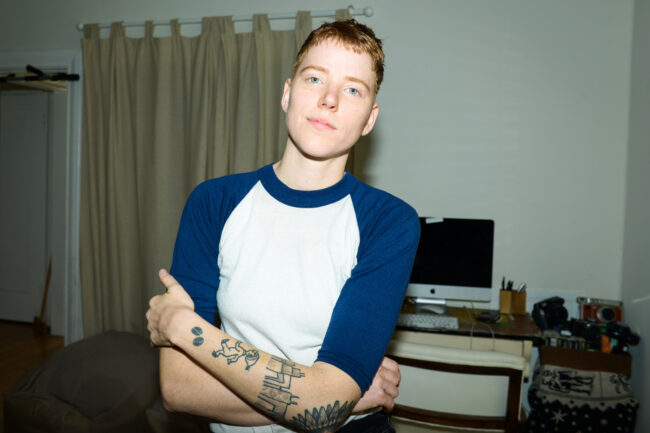
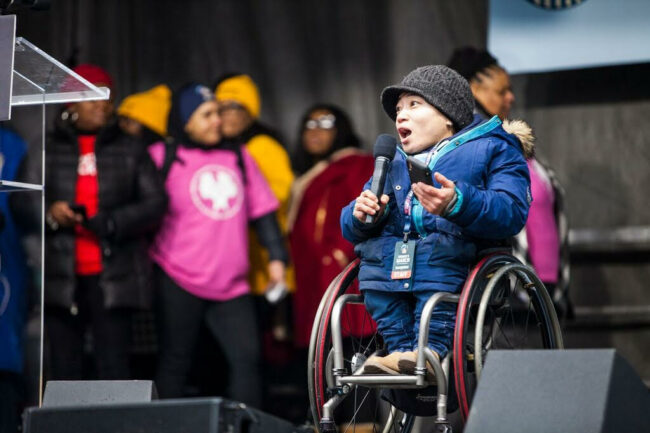

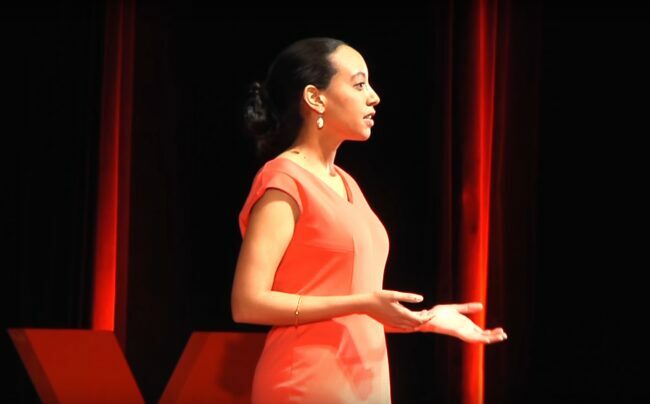
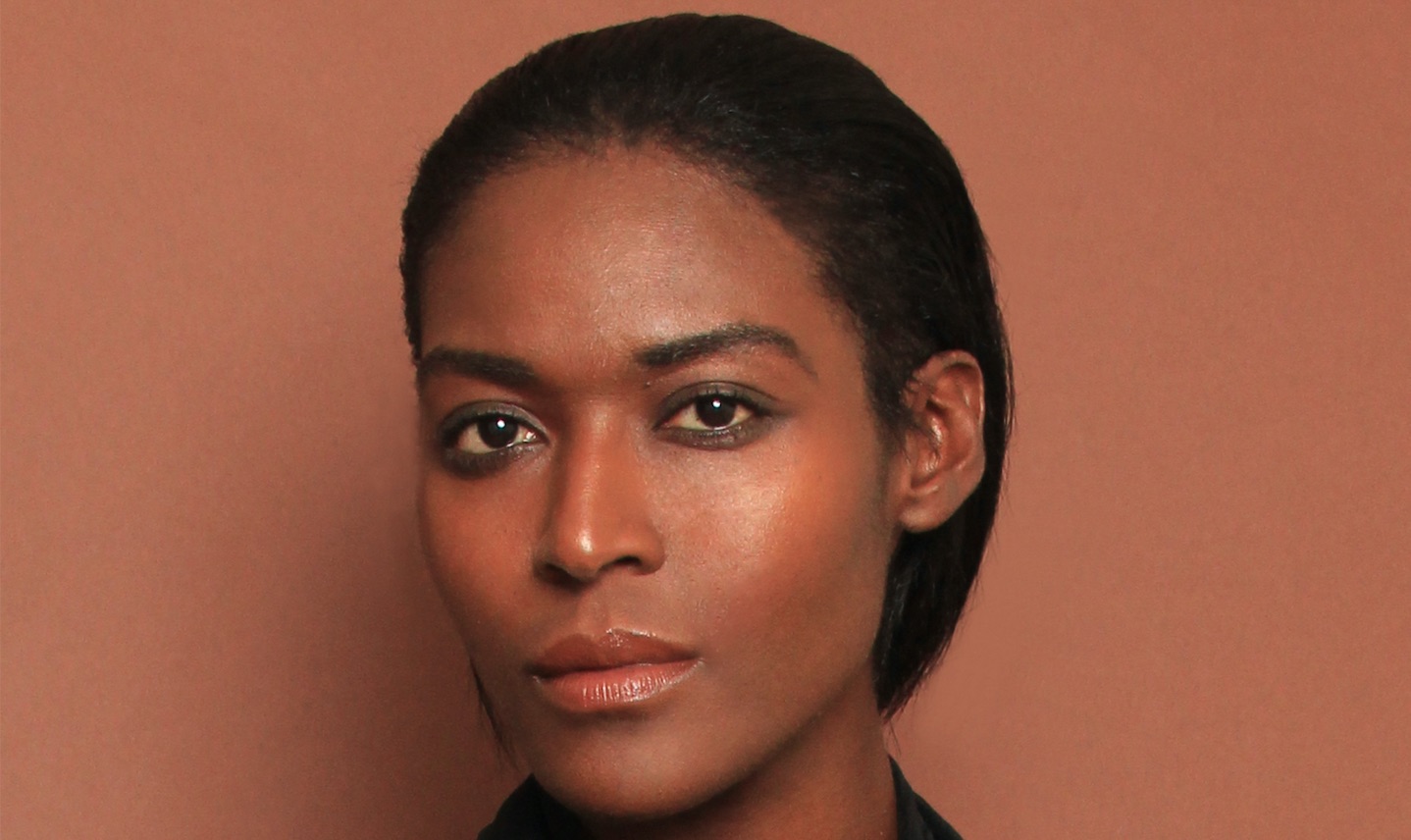
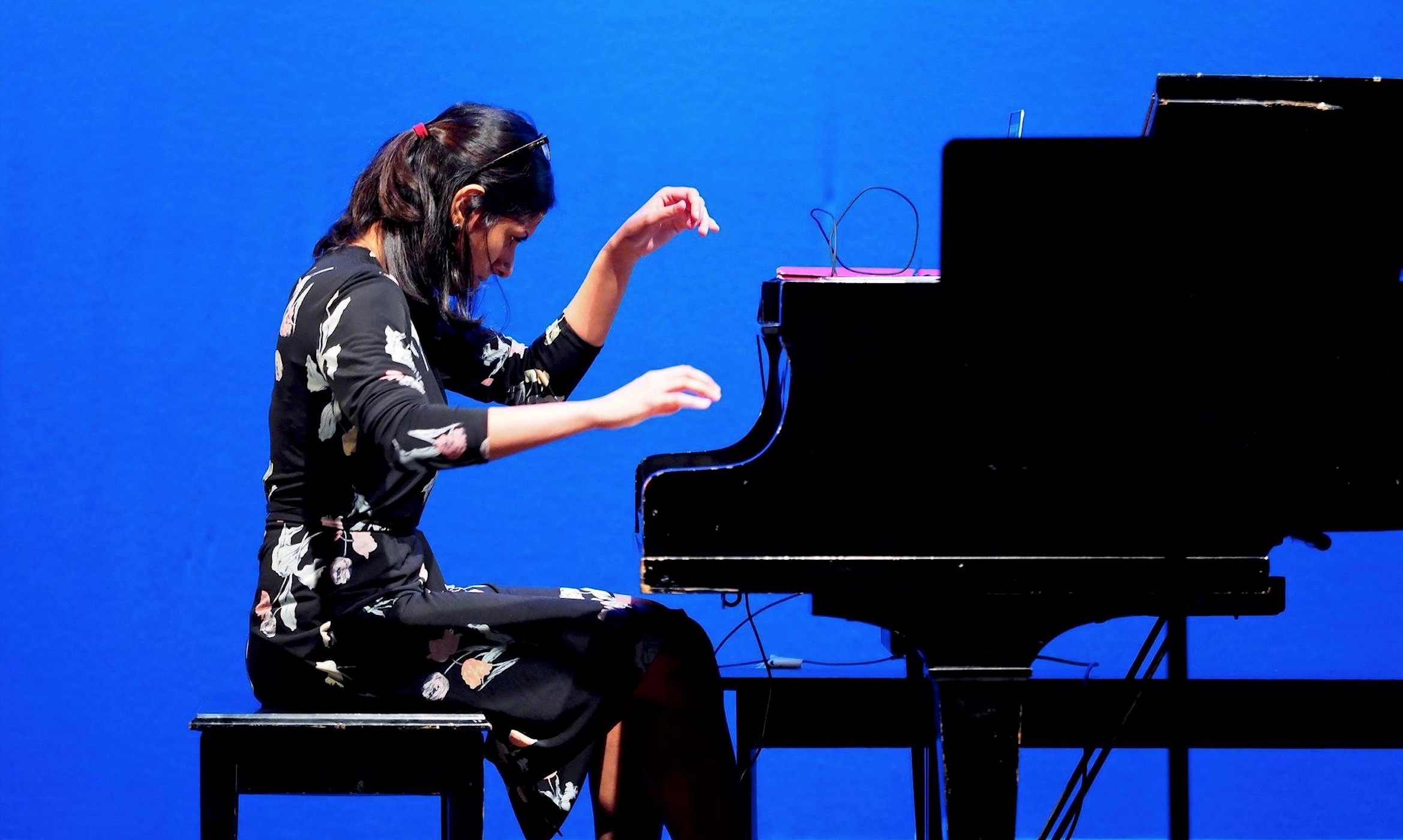
One thought on “Young Latina From South-Central Los Angeles Disrupting The Media Landscape With Her Own Publication”